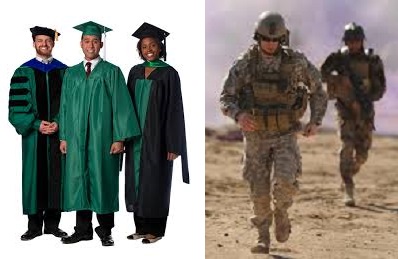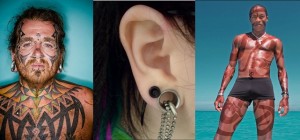As we noted in our June 15, 2015 post, the institution that has the highest confidence among Americans is the military. So it is logical that Americans would want both its fighting troops and their leaders to be as qualified as possible. As pointed out in a recent Wall Street Journal article a lot higher fraction of the enlisted personnel in the military have high school diplomas than does the American populace as a whole. And a lot higher fraction of the officers in the military have college bachelor’s degree than does the American populace as a whole, though this is because it has historically been a requirement for becoming an officer. However, there is growing evidence (including surveys such as the 2013 Gallup-Lumina Foundation Report) that the capabilities needed for a military officer might actually be better gained by actual experience—particularly (though not necessarily) in a specialized capacity or four years of actual military service as an enlisted person.
Tag Archives: officers
Decline in Qualified Military Enlistee Volumes Puts Further Pressure on Taking Care of Returning Veterans
The armed forces have long been a default choice for young adults who aren’t prepared for, or cannot choose, a different occupation. One of the more unusual enlistees, author Tom Robbins, explains his reasoning in his new autobiography, Tibetan Peach Pie: “Why? – one might fairly ask. Well, for precisely the same reason the 90 percent of all enlistees join the military, which is to say, I was at a point in my life when I didn’t know what else to do.” Unfortunately, the number of qualified enlistees continues to decline because so many (71%) of the 34 million 17-24-year-olds in the U.S. don’t meet the basic standards of education, fitness (many are very obese), and absence of visible tattoos, according to The Wall Street Journal. The tattoo requirement is because not only do these youths have to be able to fight but also they have to look good in uniform. This seems like a frivolous requirement when put into the perspective of their fellow soldiers who have been physically injured or mentally traumatized in actual combat. And with the increasing number of injured/traumatized vets not being properly cared for these days, and thus not willing or able to re-enlist, the U.S. military is going to be hard-pressed to defend our country.


